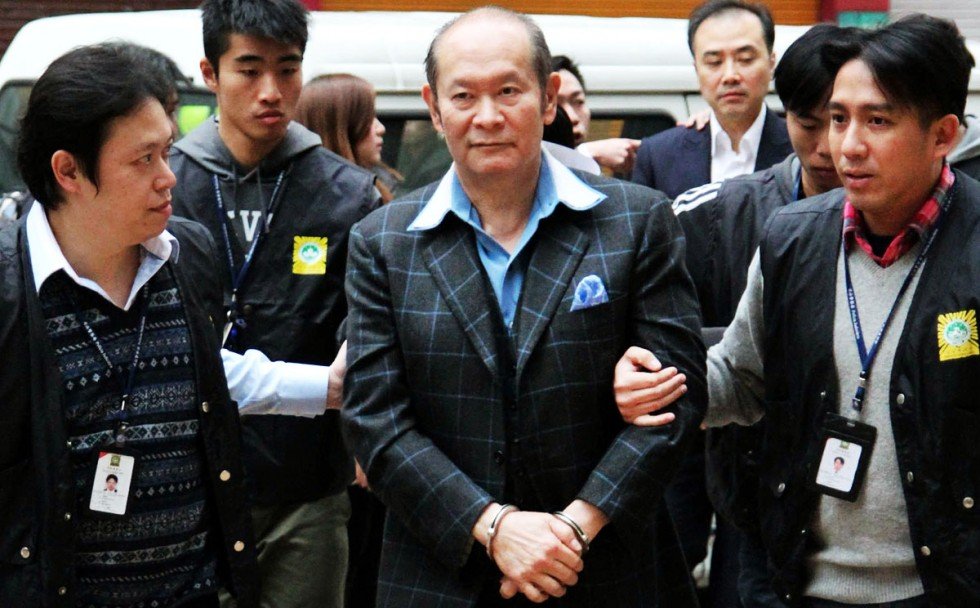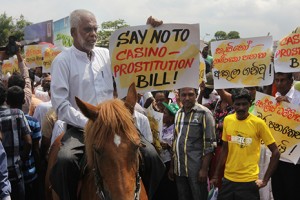There is an age-old notion that wherever there is gambling, there will be prostitutes. Just search on any browser and under “prostitution and casinos”, there are many stories linking casinos and prostitution together. It is no secret that these two have had a long history together. Illegal prostitution is practiced in casinos in order to keep men happy, especially those with deep pockets. To give you an idea of how lucrative this business is, illegal prostitution in Las Vegas grosses around $5 billion per year. Asian casinos, especially in Macau, have a similar reputation.
Prostitution: A marketing strategy for Asian casinos?
One of the biggest demonstration seen so far this year regarding casinos and their relationship with illegal prostitution in Asia was in early-January with the arrest of Alan Ho, executive director of the Hotel Lisboa. Ho, a nephew of Macau casino mogul Stanley Ho, is believed to be the ringleader. He has been accused by the Macau Judiciary Police (MJP) of running an illegal prostitution ring at the establishment. Reports stated that almost 100 prostitutes were arrested, all operating out of dozens of hotel rooms, with somewhere in the region of $50 million US dollars having been made by those in charge.

In similar fashion, last week, the China Central Television (CCTV) network aired a story claiming that some casinos on Jeju Island are offering prostitutes as benefits to entice Chinese gamblers. This was allegedly discovered after reviewing confiscated documents found during the arrests of Korean and Chinese recruiters in mid-June, at various locations in China. Chinese officials claimed that one contract in particular listed the breakdown of prostitute services -entitled to the gambler- in accordance to how much he is willing to spend at the island’s casinos. In retort, Jeju Island casinos and the South Korean tourism authorities both claimed otherwise, stating that it was the Chinese agencies that offered these packages to potential customers in China out of their own volition.
More interesting, former Sands China CEO Steve Jacobs filed a lawsuit in 2012 against Las Vegas Sands casino head Sheldon Adelson citing many reasons for his wrongful termination. In one of his statements, he accused Adelson of promoting a “prostitution strategy” in order to attract gamblers. The ongoing case is being heard at the Nevada state court. Back in 2010, the Sands Venetian Macau saw over 100 illegal prostitutes and 22 others arrested at their facility.
A game more and more dangerous
However, despite the allure of those numbers, there is a changing of the guards happening. Officials in China are no longer turning a blind eye. Instead, they have been taking a tougher stance on illegal prostitution, especially in casinos that still solicit Chinese customers via this method. Illegal prostitution has been on the country’s law enforcement radar for several years, leading to many arrests in mainland China.
Casinos in other parts of Asia should also heed the warning from China when looking to attract Chinese gamblers into their establishments via illegal prostitution marketing ploys. With China clearly determined to eradicate prostitution syndicates as well as any agencies involved in this method operating in their country, those looking to test the dragon may only end up attracting China’s fire breathing law enforcers.
The battle for public opinion
As it is, casinos in Asia have enough struggles. They are already challenged by many regulations and restrictions before they even break ground. For the most part, gambling alone is still seen as a threat to a society by a large part of the Asian population such as the case in Sri Lanka early this year. Public uproar led to the decision of banning big luxury casinos seeking to set up shop in the country. Japan is facing a similar situation today with the proposed casino bill already at parliament. Despite garnering heavy support in favor, the bill also faces equally heavy opposition, fearing that gambling will not only lead to addiction but may also negatively impact the society’s moral fabric.

In select countries in Asia, nationals are restricted from gambling in the country’s casinos. In order for casinos to tap into these huge Asian markets, which include countries such as Vietnam, Thailand, Malaysia, South Korea, and Indonesia, they must win the approval of politicians for a change in the regulations to even be considered and then proposed to the public.
For Macau, analysts concur that the future and sustainability of Macau’s casino industry will be dependent on how they attract the mass market / mid-market. Casinos operators will have to act fast though in order to get their revenues back up. They will have to diversify their marketing strategies, such as adding more wholesome entertainment packages, in order to attract professionals and families.
In this context, keeping casinos in Asia associated with questionable activities like prostitution could eventually be a very unproductive choice. Moving away from this practice may be the better path, in the long run, as there is clearly no shortage of gamblers in the region, and many untapped markets yet to emerge.




